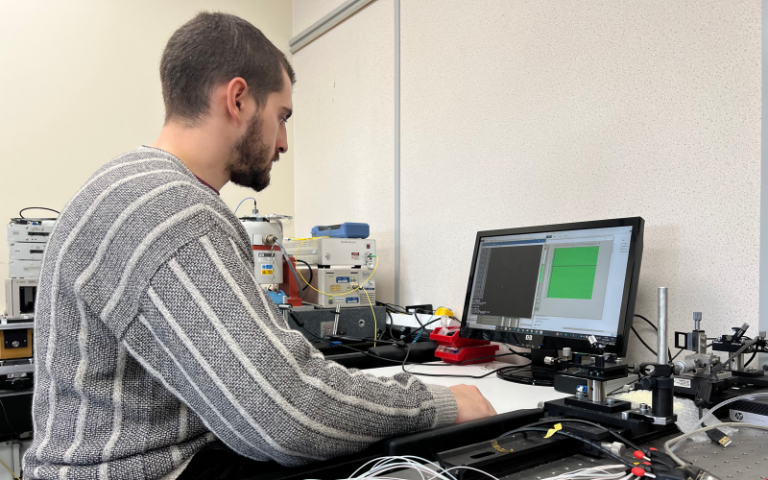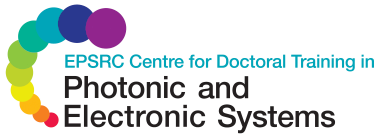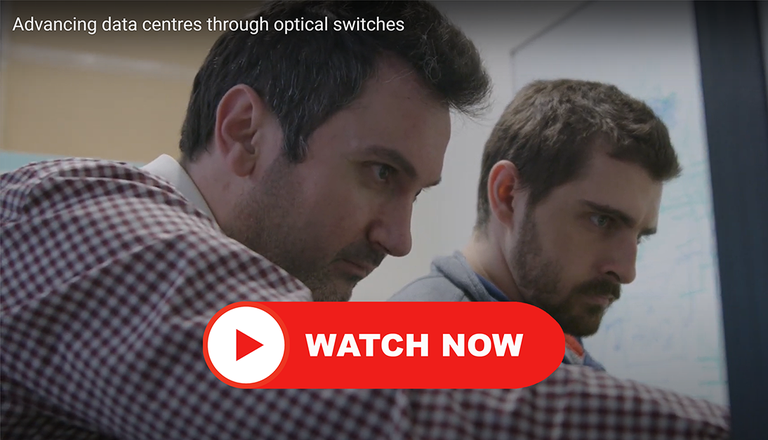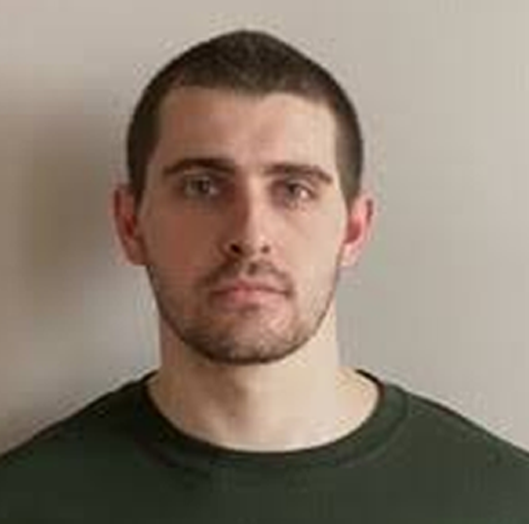
Leading UK photonics company licenses PhD student’s deep learning technology
Research by UCL Electronic and Electrical Engineering student, Zacharaya Shabka, with world-renowned industry partner, Polatis, finds real-world application.
Researchers collaborating with industry can impact real world scenarios
PhD researcher, Zacharaya Shabka, has developed a deep reinforcement learning (DRL) for fast and effective control parameter optimization under the supervision of Professor Georgios Zervas, in UCL’s Optical Networks Group (ONG).
Working with UCL Business (UCLB), the commercialization company for University College London, the academic team of Zacharaya and Prof. Zervas have successfully filed to patent the technology from the project and have licensed it alongside code written by Zacharaya. UCLB has also filed a patent application for the method developed by Zacharaya to generate optimized control parameters in a production scalable manner.
Zacharaya said:
"The patent describes a deep reinforcement learning based method for PID control-parameter optimisation that is one-shot, multi-objective and offline on application.
This is a great example of how deep learning research can have major direct impact in real world scenarios."
Prof. Zervas said:
“Collaboration with industry is fundamental to linking theoretical research to practical research and exploitation … which can change the world. This collaboration with Polatis is one of the most impactful joint projects that had an immediate commercial value and adoption.”
From research to license
During the collaborative research project with Polatis, Zacharaya developed a method for optimising control parameters based on deep reinforcement learning (DRL). The method allows for lengthy tuning processes to be avoided entirely, instead generating parameters directly from some simple measurements of the underlying control system.
Control parameters can then be generated in milliseconds without requiring any further operation of the device. This feature makes the method highly efficient in mass-manufacturing scenarios, since optimisation time is minimal and can be implemented in parallel with other production processes.
Nick Parsons, Vice President Technology, HUBER+SUHNER, said:
“Working with UCL has helped us to become aware of techniques that we wouldn’t have know about or have had the time ourselves to become experts in.
Working with Zak on this project we’ve been able to take a new technique in machine learning and apply it to our own products, with very encouraging results - having a more efficient manufacturing process and incrementally improving our production yields.”
The commercial outputs of Zacharaya’s work highlights the real-world impact of the research occurring at UCL and the importance of partnership and co-creation between academia and industry.
The DRL method to optimise control parameters is applicable to other mass manufacturing industries and is available to license from UCL Business.
Watch the interview with Professor Georgios Zervas and Nick Parsons
About Zacharaya Shabka
Zacharaya completed his Master of Research (MRes) degree on the EPSRC Centre for Doctoral Training in Integrated Photonic and Electronic Systems (IPES CDT) programme (grant EP/L015455/1).
HIs collaborative PhD project is funded by an EPSRC CASE award. The award promotes the collaboration of industry and academia by providing a challenging research training experience, within the context of a mutually beneficial research collaboration with industry. UCL EEE prides itself on its strong portfolio of collaborations with industry.
UCL Business (UCLB)
Read the full article on the UCL website


